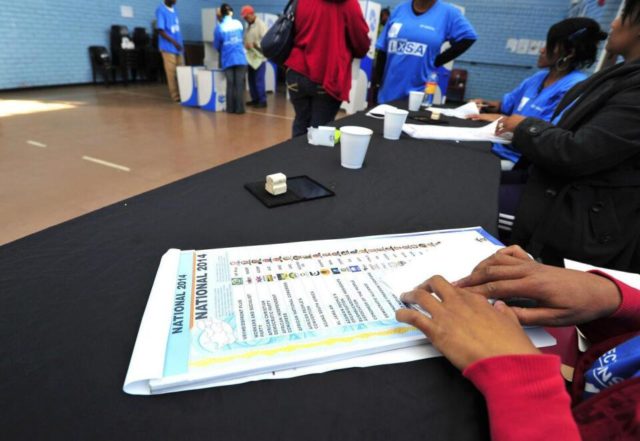OPINION: Law experts have taken a dim view of the Independent Electoral Commission’s eleventh-hour court bid to postpone the local government elections.
A CONSTITUTIONAL conundrum. This is what some law experts believe the Independent Electoral Commission (IEC) has caused with their unprecedented application to have the local government elections postponed to a later date.
Another aspect irking the experts is the lateness of the IEC’S urgent application, which was filed last week.
Given all the legal and political complications that a postponement raises, experts took a dim view of the eleventh-hour court bid, especially since the dangers and challenges posed by the coronavirus had become apparent about 18 months ago.
It is the IEC’S opinion that if the elections go ahead on October 27 as planned, it would not be free, fair or safe – because of the lingering presence of the virus.
In their founding statement, the IEC indicated that their application presented the apex court with an opportunity to “contribute to the evolving jurisprudence of our constitutional order”.
They’ve essentially asked the court to grant a postponement of the elections, the opportunity to reset a date to no later than the end of February, and that the minister of Co-operative Governance and Traditional Affairs withdraw the October 27 notice for elections, and a new notice be circulated indicating the adjusted date.
The constitutional requirement at present is that the IEC must complete the election process by November 1, and if elections are held at any later time, it would automatically be rendered “unconstitutional and invalid”.
As alternative relief, the IEC asked the Constitutional Court to suspend the “declaration of invalidity” until the end of February 2022; that they maintain supervisory jurisdiction over the IEC’S processes to set a constitutionally compliant date before the end of February; and that “municipal councils remain competent until newly-elected councils” are installed.
In terms of political support, the ANC and the EFF are in favour of a postponement.
However, the DA and other rights groups like the Council for the Advancement of the South African Constitution, are opposed to the IEC’S application, and applied to join the case as interested parties.
In a media interview this week, the DA’s federal council chairperson, Helen Zille, said that the elections could not be postponed willy-nilly.
Zille stressed that unlike other events, the election dates are entrenched in the founding provisions of the Constitution, and changes could only be effected through a constitutional amendment, which requires the support of 75% of Parliament.
She explained that those who sat to draft the constitution worded it in a way that was difficult, especially for a ruling party, to tinker and tamper with the setting of election dates.
Therefore, Zille was certain that “no court, not even the Constitutional Court” had the power to amend or temporarily suspend the Constitution, and that it would set a deadly precedent.
Professor Warren Freedman of the University of Kwazulu-natal’s School of Law, agreed with the DA that the way to postpone the elections was via a constitutional amendment.
“The problem with a constitutional amendment is that it will take a minimum of 60 days, but in reality it would take a bit longer,” he said.
Freedman said the Constitution said before an amendment was effected and went before Parliament, it had to first be published for a minimum of 30 days, for public comment. Once it goes to Parliament, voting is not allowed for at least another 30 days.
“That delay is built in so that passions could cool down and people could think carefully about what they are doing, so that a decision can be taken in a slow and sober way,” he said.
Freedman believes the amendment process would take longer because this was a controversial amendment, and the public had to participate.
The other difficulty the IEC might have with the application, according to Freedman, is that they have been running by-elections during Covid-19 times, and they managed that by complying with established protocols.
“I think they face an uphill battle in trying to postpone.
“Firstly, the Constitution does not say say you can postpone it. Postponing it is a serious matter, because there are term limits to prevent an abuse of power, whereby a ruling party can shift dates to extend its stay.
“Amending the Constitution is a long and difficult process,” he said.
Freedman agreed with the DA’s claim that other countries have held elections and referendums since 2020. Therefore, it could be achieved in South Africa. If people can go to work and shopping centres, why can’t the IEC put down the necessary markers for elections to be held.”
George Devenish, a retired professor of constitutional law involved in the writing of the interim Constitution, agreed that the postponement “cannot happen” without a constitutional amendment.
Devenish believes the court will refer the IEC to Parliament to do the amendment: “Whether they will be able to do that before the due date is problematic, because there are procedures that take time,” he said.
Pierre de Vos, a constitution law expert, said a big problem was that the IEC had not done any in-person voter registration, and the voters roll was now closed, and he questioned what would happen to all the people who had become eligible to vote.
“They should have planned for elections in October and done the extra things to make it as free and fair and safe as possible. But they didn’t do that,” De Vos said.








